US is spying on its allies for 'national security' purposes
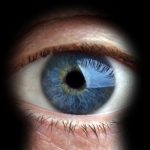
Even though US president Barack Obama promised to end the eavesdropping on highly-positioned officials among US allies, which was revealed during the Edward Snowden events, it seems that some officials are still under close watch by the NSA.
Among those is the prime minister of one of US' biggest allies -- Israel. According to a Wall Street Journal report, the White House decided to keep certain high-ranking officials under close watch, including Netanyahu and Recep Tayyip Erdogan, president of Turkey.
Clueless UK government wants you to help define its digital strategy
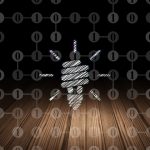
The UK government has been heavily criticized for the way it is attempting to control the way in which people use the internet -- blocking porn, unfettered surveillance and so on. The snooper's carter in particular has been the subject of much disapproval, and in an apparent bid to avoid further complaints, the government is now crowdsourcing ideas for internet policies.
In an article entitled UK Digital Strategy - the next frontier in our digital revolution (a document replete with language and references akin to an elderly parent talking about some aspect of modern culture they don't quite understand), Digital Economy Minister Ed Vaizey explains that he is looking for "ideas from public and industry on the UK's digital strategy".
North Korea's Red Star OS leaves the government in control of computers

Based on Fedora Linux, you might expect North Korea's Red Star OS to be a secure operating system. It's not -- at least not by most people's standards. Like China, the socialist state is keen to embrace the power of the internet, but wants to retain control over is citizens. This s exactly what Red Star OS enables the government to do.
Germany researchers from the security company ERNW have probed Red Star OS, examined the code and determined that it is a home grown operating system that leaves the government in control of many aspects of its use, including encryption. It has been suggested that North Korea is paranoid that the west will try to infiltrate through software, but it is North Korean citizens that should be more worried.
China passes law requiring tech firms to hand over encryption keys

Apple may have said that it opposes the idea of weakening encryption and providing governments with backdoors into products, but things are rather different in China. The Chinese parliament has just passed a law that requires technology companies to comply with government requests for information, including handing over encryption keys.
Under the guise of counter-terrorism, the controversial law is the Chinese government's attempt to curtail the activities of militants and political activists. China already faces criticism from around the world not only for the infamous Great Firewall of China, but also the blatant online surveillance and censorship that takes place. This latest move is one that will be view very suspiciously by foreign companies operating within China, or looking to do so.
Apple wants the UK government to rein in snooper's charter

Tim Cook is a vocal opponent of any form of encryption weakening, and now Apple has spoken out against the UK government's Investigatory Powers Bill -- otherwise known as the snooper's charter. Currently in draft form, the bill would require ISPs to retain customers' browsing histories for a year, and would require technology companies to implement backdoors that would allow encryption to be bypassed.
Apple says that it has serious concerns about the proposed bill in its current form, and calls for sweeping changes to be implemented. The company has famously refused to allow access to encrypted iMessage chats, and this is a stance it is reiterating.
BlackBerry's privacy stance is yet another reason to avoid the company

We are living in a post NSA-world (and I am a post-NSA girl...) and privacy is in the public consciousness more than ever before. After the government surveillance revelations that came courtesy of Eddy Snowden, most tech companies have been trying to stress to customers and clients just how willing they are to stand up for privacy.
But not BlackBerry. Company CEO John Chen has used a blog post to lash out at his contemporaries for supporting strong encryption. He makes a thinly-veiled reference to Apple, accusing that an unwillingness to comply with law enforcement requests put us all in a "dark place". Chen says that "our privacy commitment does not extend to criminals", seemingly failing to recognize that privacy is very much an all-or-nothing concept.
Connected toys and the IoT could be the next weapons of mass surveillance

Just a few days ago, we heard about the potential for the web-enabled Hello Barbie to provide hackers with personal data. Numerous vulnerabilities open up the potential for data to be stolen, but this could be the start of a worrying trend. If you thought the surveillance activities of the NSA and GCHQ are disturbing, things could be about to get much worse.
There is a movement underway that sees every conceivable device being transformed into a connected device. This is more than just the Internet of Things -- security experts are warning that not only could any devices connected to the internet (including web-enabled toys) could be used to spy on users, placing children at risk.
EFF accuses Google of sneakily gathering data about students

The Electronic Frontier Foundation claims that Google is gathering data about school children, including their web searches. In a complaint to the Federal Trade Commission about the search giant, the EFF gives details of the deceptive usage tracking it says was uncovered while conducting research for its Spying on Students campaign.
The campaign, which launches today, aims to "spread the word about companies collecting students' data and launching a campaign to educate parents and administrators about these risks to student privacy". At the center of the controversy are Chromebooks and Google Apps for Education.
GCHQ accused of "persistent" illegal computer hacking

Court documents released during a court case brought by Privacy International show that GCHQ -- the UK version of the NSA -- has engaged in "persistent" illegal hacking. The targets of the intelligence agency's surveillance include computers and phones around the world without the need for individual warrants.
There is concern about the use of "thematic warrants" which allows GCHQ to hack computers with very little justification or oversight, and with very broad remits. Privacy International is involved because there are clear privacy issues involved in GCHQ's activities, and it is seen as being of greater importance than ever with renewed interest in the Investigatory Powers Bill.
Government enterprise surveillance demands drive BlackBerry to quit Pakistan

BlackBerry wants nothing more to do with Pakistan. The Pakistani government had demanded that it be permitted to monitor BlackBerry Enterprise Service emails and BBM messages. Unwilling to bow to these demands, the company has decided to pull out of the country entirely.
From the end of 2015, BlackBerry will no longer operate in Pakistan as the company says that it does not want to compromise its customers' privacy. Unwilling to comply with surveillance directives or show any sort of support for backdoors, BlackBerry has decided to cut its losses and run.
NSA stops bulk collection of phone metadata
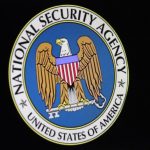
The NSA's bulk surveillance and collection of phone data has come to an end. President Obama announced that the current surveillance program would stop by 11:59 pm EST Saturday, but this does not mean that phone surveillance has completely disappeared.
Instead of wide scale dredging of data, the NSA will now engage in more targeted surveillance programs -- something that privacy advocates have been calling for for some time. The scaling back of surveillance has not come out of the blue; it's became of a legal requirement earlier in the year that has now been implemented two and half years after Edward Snowden blew the whistle on NSA spying.
ProtonMail: banning encryption won't stop terrorism

In the panic that followed the attacks on Paris by ISIS there have been calls for various measures to be put in place to stop similar atrocities happening in the future. As well as calls for an increase in online surveillance, politicians have also suggested that encryption should be weakened or banned entirely.
Secure email service ProtonMail found itself the subject of unwanted attention when it transpired that ISIS recommended using it to evade detection. The company has remained silent about the post-Paris backlash; until now.
Most smartphone owners fear hackers, thieves and government control
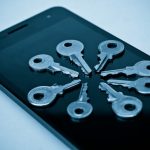
Edward Snowden's NSA and GCHQ revelations seem to be unending. One of his more recent disclosures was that UK intelligence agencies had the ability hack and remotely control any smartphone.
A survey by Broadband Genie shows that smartphone owners are more than a little concerned about this, with more than half (55 percent) saying the possibility of remote control worries them. A similar number (53 percent) express concern that these surveillance and control powers are open to abuse, and nearly a quarter (24 percent) feel they are a breach of human rights.
We can't let governments use ISIS and Paris attacks as excuses to increase surveillance

The tragic events in France have, almost inevitably, led to renewed calls for increased surveillance of the internet. This cannot be allowed to happen; terrorism cannot be used as an excuse to infringe upon the privacy of millions of innocent internet users.
We have groups such as Anonymous taking a vigilante stance in a bid to drive ISIS from the internet, but governments have leapt on the massacres as a justification for additional snooping powers. This smacks very much of being a knee jerk reaction, and there is a very real danger that rushed legislation will cause greater harm than good.
It is your duty to use an ad blocker, says Edward Snowden
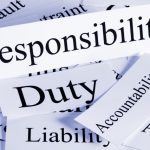
Ad blocking tools are rarely out of the news these days. In times of heightened awareness about online privacy, more and more people are turning to things like Adblock Plus to banish ads and clean up their web browsing experience. For many people an ad blocker is seen as essential.
Edward Snowden goes further. The former NSA contractor says that it is a web user's duty to protect their computer by blocking potential attack vectors such as Flash and JavaScript-riddled advertisements.
Recent Headlines
Most Commented Stories
BetaNews, your source for breaking tech news, reviews, and in-depth reporting since 1998.
Regional iGaming Content
© 1998-2025 BetaNews, Inc. All Rights Reserved. About Us - Privacy Policy - Cookie Policy - Sitemap.